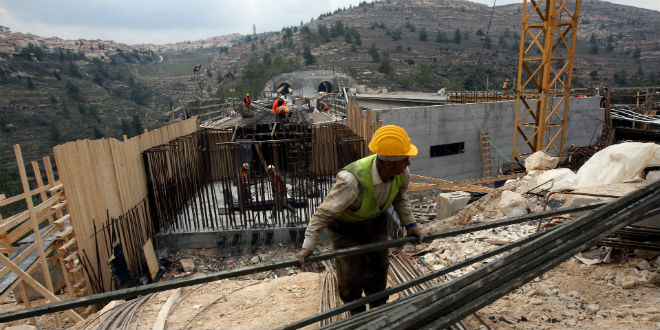After Prime Minister Benjamin Netanyahu ordered Sabbath construction work halted on Israel’s railroad lines, Israeli parliament descended into crisis, with political leaders accusing each other of flip-flopping, neglecting the public’s needs, and kowtowing to religious factions. Hundreds of thousands of commuters were affected as well as the stoppages led to major traffic jams on Sunday.
The issue of halting work on the Sabbath has been a contentious one. Work permits were issued for twenty Israel Railways projects this weekend. However, after pressure from Ultra-Orthodox political parties who demanded the cessation of all work on the grounds of Sabbath desecration, Netanyahu agreed to a compromise, ordering work on 17 of the 20 projects stopped over the Jewish holy day.

The rationale for allowing three of the projects, all located on the major Ayalon Highway, to go forward was based on the Jewish concept of pikuach nefesh, or saving a life. Congestion and traffic on the Ayalon, one of the country’s major nerve centers, could potentially endanger lives, argued rabbis and police who analyzed the situation.
Ultra-Orthodox parties said that Transportation Minister Israel Katz had promised a month ago to halt Shabbat construction but then, after a political catfight within the Likud party, gave instructions for the work to be carried out regardless.
The Prime Minister’s office called Katz’s flip-flopping a deliberate attempt to destabilize the government by creating a crisis between the Ultra-Orthodox parties and other members of the ruling coalition.
Left-wing party Meretz, complaining that Netanyahu had yielded to the Ultra-Orthodox faction, immediately protested the decision and threatened to file a multi-million shekel class-action lawsuit if work on the train infrastructure was not “conducted as necessary”, while the center-left party Zionist Union argued that the stoppages, which would delay work on the trains until Saturday night and Sunday, would hurt IDF soldiers who need to use public transportation to return to their bases after the Sabbath.
Netanyahu announced on Saturday that shuttles would be made available for IDF soldiers between inoperable train stations.
Hundreds in Tel Aviv and Haifa, two of the most heavily affected areas, protested on Saturday night after the Sabbath outside the closed stations, holding signs reading, “Bibi, this is our train too” and “Let’s get the country back on track.”
The construction delays caused enormous traffic jams on Sunday morning as hundreds of cancelled trains affected thousands of travelers and clogged the highways with buses and cars. Up to 250,000 people could be stranded without the possibility of commuting by train, Haaretz reported.
On Sunday, Netanyahu called the crisis “completely unnecessary.”
“There was no reason to get to this situation. Israel has a status quo for many years [on religious issues]. We respect it,” the prime minister said at the weekly cabinet meeting.
“When work is needed to be done on Shabbat, it is done, as was done last Shabbat on the Ayalon Highway. When it does not need to be done, it will not be done. That is the rule that guided us in the past, and it will continue to guide us.”
Municipal Sabbath observance in Israel varies depending on location, with much of Jerusalem, which is largely religious, shutting down but many shops and restaurants remaining open in more secular cities such as Tel Aviv. There is almost no public transportation in Israel on Shabbat, though there is a high level of support for increased service within the population.
The post Netanyahu Decision to Halt Train Construction on Sabbath Causes Crisis appeared first on Breaking Israel News | Israel Latest News, Israel Prophecy News.
Source: Israel in the News


